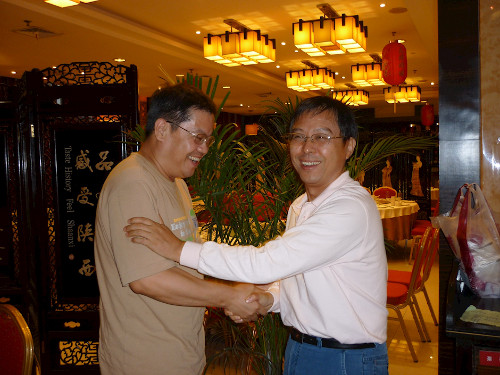1 Asking ‘how are you?
When meeting people, you don’t just say ‘hello’. You might also want to ask someone ‘how are you?’. Listen to the recording below to find out how to say this in Chinese and how to respond to it. You can listen to this short conversation more times, until you are familiar with the phrases.
Asking questions with the particle ma
In Week 1, you learnt the common greeting Nǐ hăo, which literally means ‘you well’. If you want to ask someone ‘Are you well?’, all you need to do is to add the question particle ma at the end of the statement without changing the sentence order:
Nǐ hăo ma? (lit. you well + particle ma?) Are you well? / How are you?
Whenever you ask for confirmation rather than for new information, add ma to the end of a statement.
Activity 1
Omission of the verb ‘to be’
The common response to the greeting nǐ hǎo ma is:
Wŏ hěn hăo (lit. I very good) I’m very well.
When you say, ‘I am very well’ in Chinese, there is no need to use the verb ‘to be’. It is because many adjectives also function as verb-adjectives with ‘to be’ incorporated. So hăo here can be translated as ‘be well’. This is a distinctive feature of the Chinese language.

